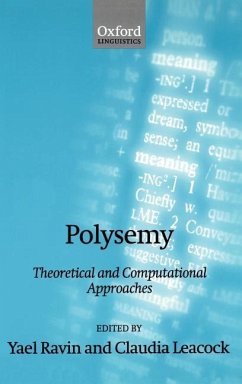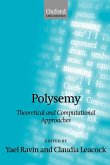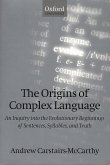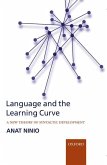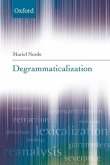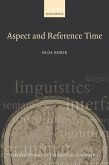They examine the issues arising from the regularity of polysemy and the theoretical principles proposed to account for the interaction of lexical meaning with the semantics and syntax of the context in which it occurs. Finally they consider the formal representations of meaning in the lexicon, and their implications for dictionary construction. The computational essays are concerned with the challenge of polysemy to automatic sense disambiguationDShow intended meaning for a word occurrence can be identified. The approaches presented include the exploitation of lexical information in machine-readable dictionaries, machine learning based on patterns of word co-occurrence, and hybrid approaches that combine the two. As a whole, the volume shows how on the one hand theoretical work provides the motivation and may suggest the basis for computational algorithms, while on the other computational results may validate, or reveal problems in, the principles set forth by theories.
Polysemy is a term used in semantic and lexical analysis to describe a word with multiple meanings. Although such words present few difficulties in everyday communication, they do pose near-intractable problems for linguists and lexicographers. The contributors in this volume consider the implications of these problems for linguistic theory and how they may be addressed in computational linguistics.
Polysemy is a term used in semantic and lexical analysis to describe a word with multiple meanings. Although such words present few difficulties in everyday communication, they do pose near-intractable problems for linguists and lexicographers. The contributors in this volume consider the implications of these problems for linguistic theory and how they may be addressed in computational linguistics.

